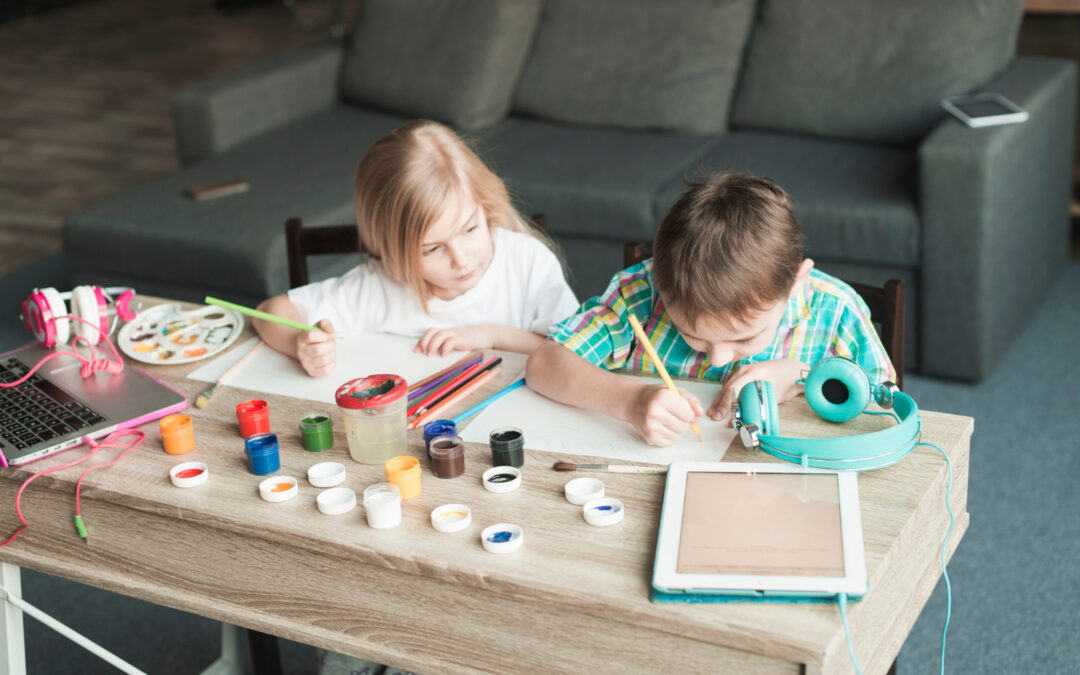Participating in group activities is a crucial part of social skill development for children with autism. Group ABA (Applied Behavior Analysis) activities provide a structured environment where children can learn and practice essential social skills with their peers. By engaging in these activities, children gain opportunities to develop communication skills, learn to cooperate, and build friendships.
The controlled setting and guided interactions in group ABA sessions help children understand social norms and behaviors, which are essential for their personal growth and integration into broader social circles. In this article, we will explore the benefits of group ABA activities, highlight key social skills targeted in group settings, provide examples of effective group activities, and suggest strategies for parents to support group learning at home.
The Benefits of Group ABA Activities for Social Skill Development
Group ABA activities offer numerous benefits for social skill development in children with autism. Engaging in group settings provides children with a valuable opportunity to practice social interactions in a structured and supportive environment. These activities are specifically designed to simulate real-world social situations, helping children learn how to navigate social cues, share, take turns, and interact cooperatively with peers.
Participating in group activities also helps build a child’s confidence in social settings. By observing and interacting with their peers, children can learn appropriate behaviors and responses. These interactions can foster a sense of belonging and improve their ability to form and maintain friendships. The structured nature of group ABA activities ensures that each child receives the guidance and support needed to succeed in these social interactions.
Key Social Skills Targeted in Group Settings
In group ABA settings, several key social skills are targeted to aid in the holistic development of each child. One of the primary skills focused on is effective communication. Children learn how to initiate conversations, respond appropriately, and use both verbal and nonverbal communication cues. These skills are fundamental for meaningful social interactions and building relationships.
Another important area is cooperative play and teamwork. Group activities often involve tasks that require children to work together towards a common goal. This teaches them the importance of sharing, turn-taking, and collaborative problem-solving. Additionally, emotional regulation and empathy are crucial skills targeted in group settings. Children are taught how to recognize and manage their own emotions and understand the feelings of others. This enhances their ability to react appropriately in social situations and develop deeper, more empathetic connections with their peers.
Examples of Effective Group ABA Activities
Implementing specific group ABA activities can significantly enhance children’s social skills. One effective activity is structured play, where children engage in games that require turn-taking and cooperation. For instance, playing board games or simple sports activities like relay races teach children how to follow rules, wait their turn, and work with others to achieve a common goal. These activities make learning social skills fun and engaging.
Role-playing scenarios are another powerful method. In these activities, children act out different social situations, such as greeting someone, asking for help, or resolving a conflict. This type of practice allows them to explore various social interactions in a safe environment. Through guided practice and feedback, children can develop more appropriate and effective ways to handle real-life social situations, boosting their confidence and competence in social settings.
Strategies for Parents to Reinforce Group Learning at Home
Parents play a critical role in reinforcing the social skills learned during group ABA activities. One effective strategy is to replicate group activities at home. Inviting friends or siblings to join in structured play can provide additional practice opportunities. Encourage activities that involve cooperation and communication, such as group crafts, cooking simple recipes together, or playing team-based games.
Using positive reinforcement to acknowledge and reward appropriate social behaviors is also important. Praising your child when they share, take turns, or communicate effectively reinforces these behaviors and encourages their repetition. Additionally, discussing and reflecting on the day’s group activities can help solidify the skills learned. Ask your child questions about their experiences, what they enjoyed, and what they found challenging. This can provide insight into their progress and areas that may need more focus.
Conclusion
Group ABA activities are an essential component of social skill development for children with autism. These activities provide a structured and supportive environment where children can practice and enhance their social interactions. By focusing on key social skills like communication and teamwork and implementing effective activities like structured play and role-playing, we help children build the confidence and competence they need.
At Strive ABA Consultants, we are dedicated to providing the tools and support needed for your child’s success. If you’re looking to learn more about how group ABA therapy activities can benefit your child, reach out to us today. Together, we can help your child reach their full potential.


